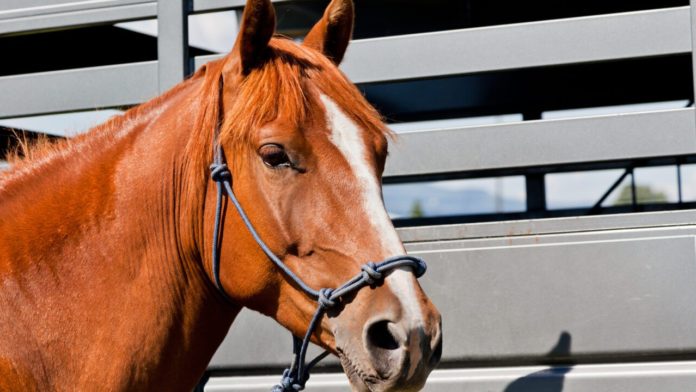Last Updated on January 15, 2024 by Fumipets
Owning horses is a thing of joy. They are fascinating to look at, fun to ride, and wonderful companions. However, having a horse entails significant financial commitment. The horse cost is the only significant expense to consider.
Horses demand a considerably longer and more costly commitment than other pets since they may live up to 33 years old. When caring for a horse for so long, there are numerous expenses to take into account. What you need to know about the short- and long-term costs of owning a horse is provided here.
Costs Associated with Bringing a New Horse Home
The price of the horse itself should be considered first. Depending on the horse you buy and where you get it from, prices might vary significantly. If you’re extremely fortunate, you may spend absolutely nothing. However, if you want a horse with a distinguished pedigree, be prepared to spend more than $3,000 to $5,000.
If you are ready to put in the effort and are not bothered with the horse’s age, you may be able to get a horse for nothing. Your objective will be to locate someone who is searching for a decent home to give their horse to since they can no longer care for the horse themselves, as opposed to going to a breeder or even a humane organization.
Numerous individuals get too elderly to securely care for their horses or have changes in their financial situation prevent them from being able to support their horses. Horse owners in situations like these are more concerned with finding a secure and devoted home for their horse than with generating money. To connect with horse owners wishing to rehome their pets, place an advertisement in your local newspaper and get in touch with 4H clubs.
Adoption • $25-$500
Working with the humane society or another kind of animal rescue facility is a requirement for adopting a horse as opposed to purchasing one. You may need to contact rescue organizations outside of your neighborhood to discover one that takes care of stray horses if horses are not often kept as pets where you live.
You may anticipate paying an adoption fee to assist the rescue organization in covering any expenses incurred while caring for the horse prior to adoption. Depending on a number of variables, such as how long the horse has been housed, what kind of horse they are, and if the horse has any special requirements, this charge may range from $25 to more than $500.
Breeder • $500-$5,000+
The most expensive choice is to buy a horse from a breeder, but it is also the most versatile. Pedigree, showmanship, and breeding skill are things you’ll have to pay for. From a breeder, you might anticipate paying anything between $500 to more than $5,000 for a horse. Comparing prices amongst breeders is usually a wise move since prices will vary.
List of 4 Breeds and the Average Horse Cost
| Standardbred | $500-$3,000 |
| Arabian | $1,000-$5,000 |
| Holsteiner | $3,000-$10,000 |
| Oldenburg | $4,000-$20,000 |
Supplies • $800+
List of Horse Care Supplies and Cost
| Food (Hay, Fruits, Veggies, Salt, etc.) | $100-$300/Month |
| Feed Pan | $10-$30 |
| Water Trough | $25-$100 |
| Halter | $25-$200 |
| Lead Ropes | $10-$50 |
| Hoof Pick | $2-$10 |
| Grooming Brush and Comb | $5-$20 |
| Fly Repellent | $5-$30 |
| Saddle | $100-$500 |
| Bridle and Bit | $50-$250 |
| Stirrups | $20-$100 |
| Lead Ropes | $10-$30 |
| Blanket | $50-$150 |
| Washing Accessories | $25-$50 |
Annual Expenses
When determining whether to adopt a horse, there are several annual costs to think about. Since these costs will persist throughout the horse’s life, careful consideration should be given to whether they will eventually become too much to bear. What you should know about the yearly costs associated with owning a horse is listed below.
Medical Care • $300-$600 annually
Expect to save $300 to $600 year to meet all of your needs since annual healthcare costs may add up rapidly. First off, annual dental maintenance for your horse will probably cost about $100. The cost of annual checkups might range from $200 to $300. The expenses associated with vaccinations are another factor to consider.
These are only ballpark figures for a healthy horse. Before the year is up, you can find yourself facing medical expenditures in the hundreds of dollars if your horse ends up requiring surgery or physical treatment. Fortunately, when horses are appropriately cared for, emergency and intensive treatment are seldom required.
Check-Ups • $200-$300 annually
Each inspection appointment should cost approximately $100 unless an illness or injury has to be addressed and treated, in which case the cost might be higher. A horse should be examined by a veterinarian two to three times a year. Setting up frequent checks is a crucial step that should be performed to detect issues early, before they become too costly or difficult to handle.
Vaccinations • $110-$190 annually
Every two to three months, horses should be given a deworming medicine, which costs around $15 per pill. Vaccinations, including boosters for illnesses like influenza and tetanus, are normally given twice a year. Each visit for a booster vaccination might cost between $25 and $50.
Dental • $75-$125 annually
Horses need regular dental exams just as they do for general health. They should have a professional clean their teeth on a regular basis to prevent cavities and other dental issues (like the need for a root canal).
Emergencies • $0 to $10,000+ annually
No one ever plans for emergencies. While some horses may need emergency treatment many times before they reach old age, others may spend their whole lives without ever requiring it. It all relies on a horse’s genes, food, health, level of happiness, and quality of life. While some urgent care procedures only cost a few hundred dollars, others, like surgery, may go as high as $10,000 or more.
Insurance • $300 to $12,000+ annually
Horse owners may get equine insurance, but the cost and kind of coverage will depend on the kind of horse they wish to protect. You may get insurance coverage via veterinary professionals and independent businesses that cover medical emergencies, mortality, or both. Equine insurance premiums are often determined by the cost of the horse that will be insured.
Food • $125 to $350 annually
Over the course of their life, the average horse may consume between $100 and $300 worth of hay bales per month. Fruits and vegetables are also enjoyed by horses as an addition to their meals. Depending on their availability of fresh meals, they sometimes require vitamins as well as salt. This increases monthly food prices by an additional $25 to $50.
Environment Maintenance • $60 to $170 annually
When it comes to maintaining a horse, there are just a few environmental expenses to think about. If and when it becomes necessary, boarding would be the highest price. Fence construction, upkeep, and repair expenditures are inevitable if owners decide to keep their horses at home rather than board them. Additionally, horses should be given toys to play with and stimulate their minds.
| Boarding | $18/year |
| Fencing Maintenance/Repair | $20-$100/year |
| Toys | $20-$50/year |
Total Annual Cost of Owning a Horse • $1,001–2,500+ annually
The fact remains that owning a horse is costly. Even if there are no unforeseen costs, taking care of a horse’s basic needs can cost thousands of dollars annually. You never know when an unexpected expense will come up.
Owning a Horse on a Budget
Owning a horse might not be the best choice for you if you’re on a tight budget. It might be impossible to provide for a horse at any given time due to too many financial factors being in play. It might be preferable to occasionally rent a horse for short rides or go on a horseback tour once or twice a year.
Saving Money on Horse Care
As a horse owner, there aren’t many ways to save money. Instead of forcing your horse to rely entirely on you for food, you can save money by letting them roam free. They won’t require nearly as much of the hay, produce, or fruits that you must buy. At the end of the year, freeranging your horse can result in significant financial savings.
Conclusion
You now have a clear understanding of the long-term costs associated with owning and caring for a horse. Making the choice to buy or adopt a horse is a significant one that shouldn’t ever be rushed. But owning a horse is a rewarding experience that is well worth the financial and emotional commitment.


















